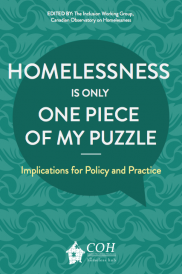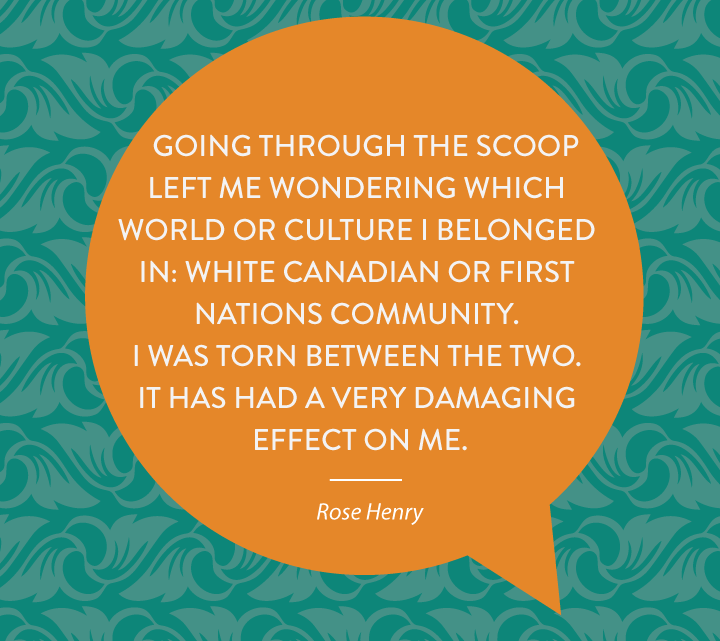This is an excerpt from the Homelessness is Only One Piece of My Puzzle: Implications for Policy and Practice book.
My name is Rose Henry. I was born June 15th, 1958, in Bremerton, Washington, in The United States. I come from Sliammon Nation (mother’s side). My birth parents are the late Florence and Moses Dominic, who were survivors of the residential school system. I remember hearing stories of when my 15-year-old mother and 19-year-old father had to pick strawberries as their only source of employment to survive. Life was so hard for them back in those days, forcing them to move a lot, and they eventually moved to my mother’s home community of Sliammon, north of the Powell River in British Columbia, Canada.
These horrible experiences were overshadowed by the trauma of seeing their first-born apprehended by the Canadian state authorities in 1966. I was placed in government care in a residential health facility called Sunny Hill Children’s Hospital. I was two years old and would remain there for the next six years, classified as a ward of the state and misdiagnosed by medical authorities as ‘mentally retarded.’ Finally, at eight years of age, I was placed into foster care. Fortunately for me, my foster parents understood that I had a very strong need to be with my biological parents. My foster mom used to say to me, “You would get literally sick.” They were risk takers who had to break all the rules to bring me to my mother. My foster parents would always make sure, for the whole ten years I stayed with them, that I had some interaction with my birth parents. They would tell my mother and father where I was and what I was doing, at all times. When I look back now, I realize that all four of them were my pillars of life; they taught me good values and provided me with a great moral compass that I still abide by today.
My foster parents had taken a hands-on approach to raising me, completely overlooking the ‘mentally retarded’ label that was bestowed upon me by the state. They debunked this misdiagnosis by instilling in me the idea that anything was possible. Moreover, their unconditional love provided me with structure and consistency, which taught me the value of trust and commitment. I know I was quite lucky, as most children who go through the foster care system aren’t as fortunate as I was. I am grateful for their guidance and affection.
Regardless of all my parents’ efforts, I still ended up homeless as a consequence of the Sixties Scoop. Going through the Scoop left me wondering which world or culture I belonged in: white Canadian or First Nations community. I was torn between the two. It has had a very damaging effect on me; society told me you’re brown on the outside and white in the middle (as I was brought up in a white home). I was confused and lost, and it was this path that ultimately led me to my life on the streets. My confusion about my identity was not all bad though. It was dualistic like me; it was both a hindrance and strength, and has remained so throughout my journey. In fact, there have been times in my life that I have used it as a guide to negotiate between two worlds and two very different cultures. But overall, I have to admit that it was very damaging in my youth.
 |
Read the rest of this story in the Homelessness is Only One Piece of My Puzzle: Implications for Policy and Practice book. Download it for free at: http://homelesshub.ca/onepieceofmypuzzle |


